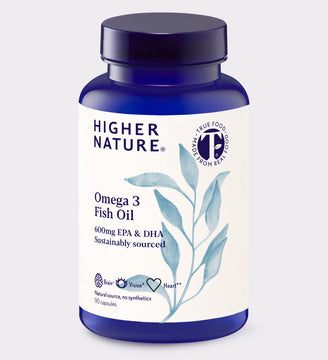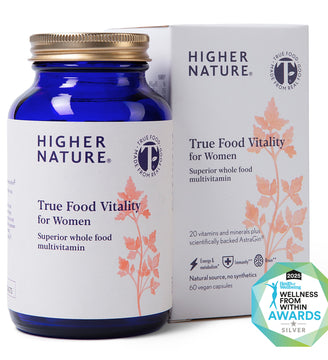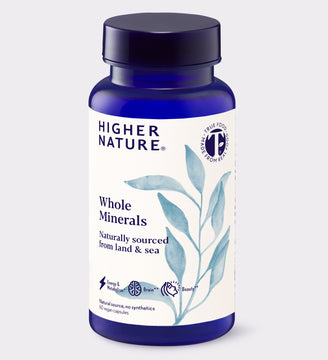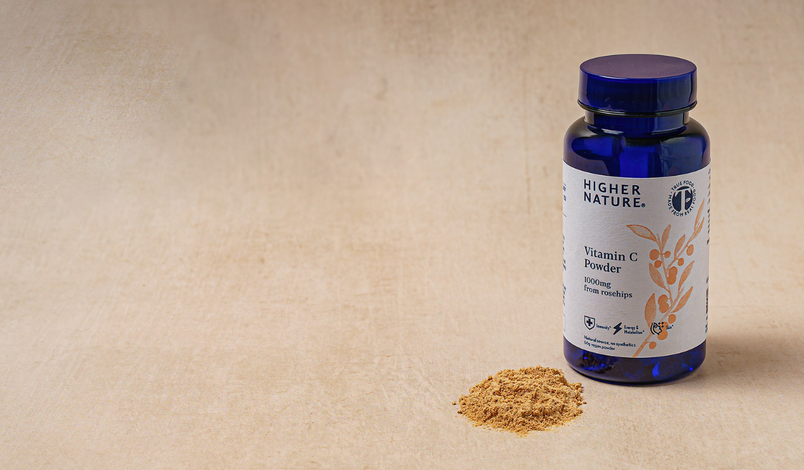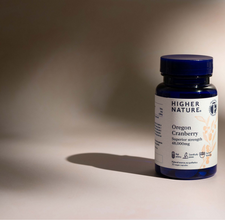
Go forth and multiply! Nutritional tips for fertility
Higher Nature Nutrition Team
Maximising fertility
Maximising fertility is often seen as a woman’s issue, but it does, of course “take two to tango”! In fact, low sperm count and poor sperm quality are contributory factors for one in every three couples unable to conceive. It is thought that damage by excessive free radical molecules may negatively affect sperm motility and sperm DNA integrity. Antioxidants such as vitamins E and C and the mineral selenium help to protect the body from free radical damage and studies suggest they may support sperm health. The amino acids, arginine and l-carnitine are also essential for sperm quantity, quality and motility.
Omega 3 and 6 essential fatty acids are vital in producing beneficial prostaglandins (local hormone-like messengers) which are important constituents of semen. Essential fatty acids are also necessary for female fertility, assisting healthy hormone balance and blood flow to the reproductive organs. Oily fish such as salmon and mackerel supply omega 3 essential fatty acids, whilst pumpkin and sesame seeds not only provide essential fats but are also a rich source of zinc, which plays an important role in hormone metabolism, sperm formation and motility. Vitamin B6 and biotin help to convert the essential fats into prostaglandins, whilst vitamin B12 supports healthy sperm production.
Steer clear of chemically altered trans-fats, found in processed, refined snack foods and ready meals as they interfere with essential fatty acid pathways and may increase the risk of anovulatory infertility.
Fertility friendly foods
Antioxidants found in colourful fruits and vegetables such as kale, spinach, Brussels sprouts, broccoli, green, red and yellow peppers, tomatoes, carrots, berries and oranges, are needed by both partners to protect against free radical damage to sperm and eggs. Tocopherol (vitamin E) literally means “to bear young” and is found in foods such as dark leafy greens, nuts, seeds and avocados. Whilst a high intake of Vitamin A (retinol) may increase the risk of birth defects, the vegetable source of vitamin A, known as beta-carotene does not carry the same risks and is safe during pregnancy. Beta carotene is a powerful antioxidant found in carrots, squash, sweet potatoes, spinach and kale. A fertility friendly diet should also include protein-rich foods such as chicken, eggs, fish, nuts, seeds, quinoa, beans and lentils as well as complex carbohydrates such as brown rice, oats and wholemeal bread.
A deficiency of folic acid, found in lentils, beans, dark green vegetables and avocados, increases the risk of serious birth defects, such as spina bifida. A daily supplement of 400mcg folic acid daily is recommended by the Department of Health from the moment you start trying to conceive. Ideally, this would be included in a multivitamin and mineral especially formulated for pregnancy.
Not surprisingly, studies suggest a negative effect for alcohol on the fertility of both partners, whilst one study showed that women drinking over 300mg/day of caffeine had a 27% lower chance of conceiving for each cycle. So ditch the coffees and switch to herbal teas!
Healthy lifestyle
The technological age appears to be taking its toll on male fertility! Balancing computers on the lap may raise scrotal temperature which has been linked to poor sperm quality and male infertility. Men should similarly avoid hot baths, saunas and tight underwear!
Environmental toxins from sources such as plastic food packaging, cosmetics, household cleaners and pesticides may disrupt hormone balance and sperm production and should be avoided as far as possible.
Finally, tension and anxiety can adversely affect both male and female partners. Studies have found that stress in women significantly reduces the probability of conception, so relax with activities such as meditation, yoga, deep breathing and walking. Then you will be ready to go forth and multiply!


